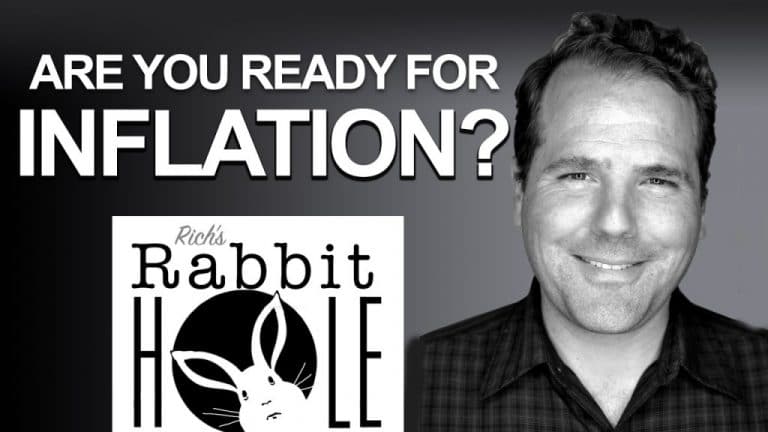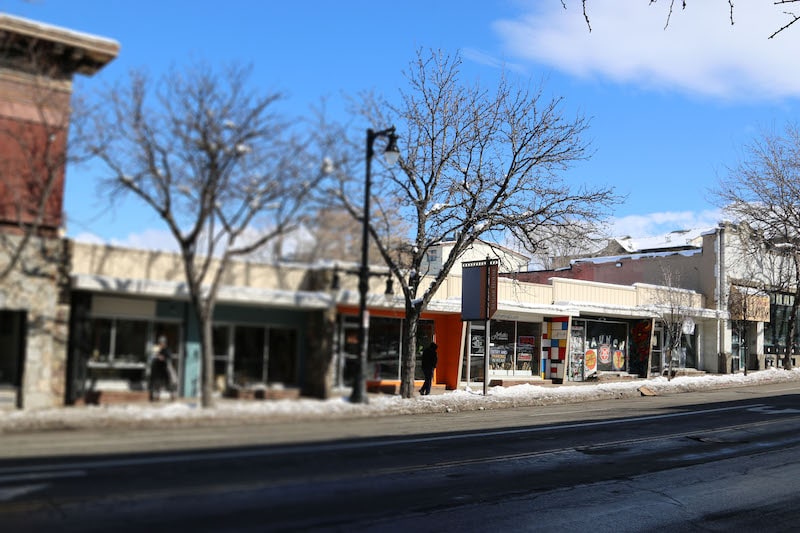What is going to happen to our currency and our retirement accounts and pensions after the government spends $8 trillion to bail out the economy?
LISTEN TO THE PODCAST:
WATCH THE VIDEO:
What is going to happen to our currency and our retirement accounts and pensions after the government spends $8 trillion to bail out the economy?
Congress has already allocated nearly $4 trillion to bail out our economy due to Covid-19 restrictions and closures. The Federal Reserve has issued another $4 trillion in treasuries to foot the bill to allow for the additional debt. But what are the long-term consequences of spending and borrowing so much money in such a short period of time?
What will happen as the federal government will be required to bail out city and state governments in order for them to remain solvent?
These are some very important questions that we do not see our local or even national media beginning to tackle. Why aren’t they asking these questions? Because economic literacy and monetary policy experts are difficult to understand and don’t usually gain high ratings on news programs. But neglecting this topic is to the great detriment to all Americans. Everyone should gain a basic understanding of economics and how government spending impacts our overall economy, which is why Utah Stories through the Rich’s Rabbit Hole program is tackling this issue.
To put this bailout in perspective, when much of the U.S. financial sector began collapsing due to the housing market collapse in 2008, the Federal Reserve bailed out banks to the tune of first just $500 billion but ended up being on the hook for $16 trillion in loans from TARP funding. These funds increased our national debt under the Obama administration by trillions. The current loans and forgivable grants the federal government is issuing are currently half this much, so why worry?
There is a common statement in economics, “There is no such thing as a free lunch.” While federal government generosity might seem like a good thing, it is certain there will be long-term consequences to the massive spending binge the government is on right now, but what they will be is debated among economists.
One consequence small business owners are facing receiving PPP funding, is that CARE funding, allowing for up to $600 per week for unemployed workers, is producing a big incentive for laid off workers to stay home rather than return to work. What will potentially thousands of small business owners do if they can’t get their employees to return to work? This will create a temporary spending binge for laid-off workers and a disincentive for workers and place all small business owners in a pinch who laid off their employees. We believe under the current conditions this will cause the economic recovery to falter.
The Strength of the U.S. Dollar
Most economists believe that the U.S. dollar remains strong and will remain strong because we are the “cleanest of all of the dirty blankets.” In other words, while we have by far the most debt on our national balance sheet of any country, but our debt to GDP ratio is just seventh in the world.
For decades U.S. dollars have been used as the “reserve currencies” of hundreds of countries around the world. It has remained the go-to currency that other nations use when their own currencies begin to lose their value due to inflation. It’s estimated that there is currently nearly three times as much paper money in other countries, such as South America and Russia than there is in the United States. People hoard U.S. dollars and use U.S. dollars as a safety blanket, much like some investors revert back to gold when all else fails.
But basic economics follows a very simple formula of supply and demand. As we massively increase the supply of U.S. dollars in the form of treasury bonds into the world market, the demand for these treasuries and dollars is certain to decline. And the reason why so many people in other countries hoard dollars is that they believe in our currency based on our strong economy, our national values, and principles. If these values begin to falter, everyone hoarding dollars will want to sell their dollars and trade them for a better currency.
When will we start to feel and see inflation?
There are many questions regarding what, where and when we will begin seeing inflation occur in the U.S. In part two of this program, we show how there has been hidden inflation for the past decade, due to how the Bureau of Labor Statistics has changed the way that they measure inflation. But the questions worth addressing are:
- What prices of which items will begin increasing the most?
- Where will investors and retirees counting on their 401(k) plans be able to retain value and wealth?
- When will the value of all our dollars begin to realize a rapid decline in value?
These are the questions we begin to explore in this multi-part series of Rich’s Rabbit Hole, a research-driven project to help more Utahns gain insight and answers to the basic problems we all face. We highly recommend learning basic economics by watching video lectures from Milton Friedman. We also highly recommend the book by Thomas Sowell entitled Basic Economics.
If you would like to help this show. Buy your book through our Amazon affiliate link, and support our sponsors and tell them you found out about them from this show.
Basic Economics: A Common Sense Guide to the Economy







